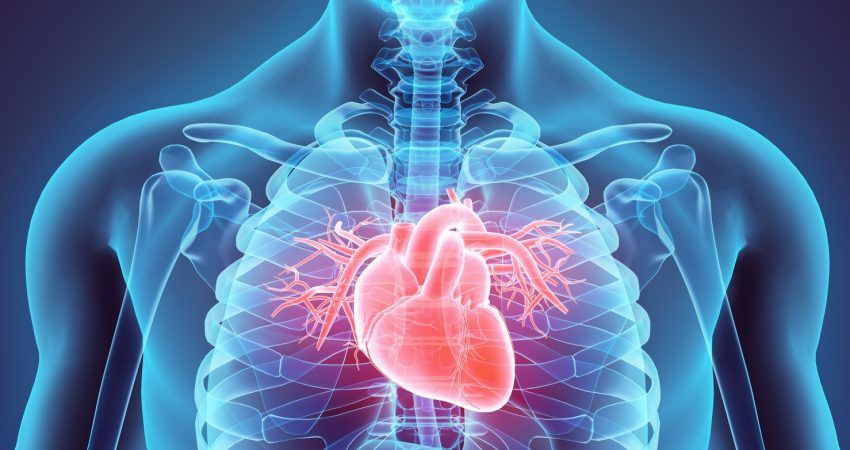Treatment of ischemic heart disease
The term ischemic heart disease describes a set of symptoms caused by insufficient blood flow to the heart muscle, so that the heart’s need for oxygen is not met. Ischemic heart disease is also known as coronary artery disease. Its main effect is impairment of the patient’s physical fitness, which in time may lead to premature death. To prevent this, lifestyle changes and early treatment are necessary.
Causes of coronary artery disease
In the vast majority of cases (95 percent.Coronary artery disease (CAD) develops as a result of late-stage (and thus untreated) atherosclerosis of the coronary arteries. This disease leads to narrowing of the peripheral arteries, making them unable to fulfill their role of supplying the heart muscle with sufficient oxygen. Symptoms of ischemic heart disease occur primarily during increased physical exertion, when the heart needs most oxygen to perform its work. Ischaemic heart disease can be treated with drugs or surgery. The symptoms include severe pain behind the breastbone, shortness of breath, palpitations, dizziness and extreme weakness. In extreme situations, it can lead to a heart attack.
Other known causes of ischemic heart disease include blockages and sudden spasms of the coronary arteries, inflammation of the coronary arteries, and congenital defects.
What is the treatment of coronary artery disease?
As our interlocutor, a cardiologist from Euro Klinika in Siemianowice Śląskie explains: Ischemic heart disease can be treated with medication or surgery. Of course, everything depends on the patient’s condition – the stage and causes of coronary artery disease and overall health. Regardless of the chosen method, it is also necessary to treat comorbidities that have an impact on the development of coronary artery disease, such as atherosclerosis or diabetes. It is also very important to change the patient’s lifestyle by stopping smoking, limiting alcohol and changing diet.
Pharmacological treatment of coronary artery disease
In the case of pharmacological treatment of coronary artery disease, the patient is given medication to reduce the troublesome symptoms of the disease and to preserve its further development. Interestingly, one such drug is acetylsalicylic acid, or the popular aspirin. The action of the acid causes the platelets to stop clumping together, which prevents the formation of blood clots. Other types of medications given to treat ischemic heart disease include nitrates, which relax the venous vessels and reduce wall tension in the arteries; statins, which reduce triglycerides and LDL cholesterol and raise HDL cholesterol; and beta-blockers, which reduce the heart’s need for oxygen by slowing the contractility of the heart muscle.
Surgical treatment of coronary artery disease
Another way to treat ischemic heart disease is to perform surgery to restore normal blood circulation. Percutaneous coronary intervention, which involves mechanically widening or unclogging blood vessels, or coronary artery bypass grafting, which is the implantation of bypass grafts (vascular bypasses designed to bypass the site of narrowing in a coronary artery).

